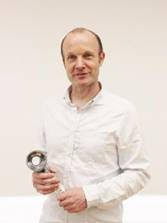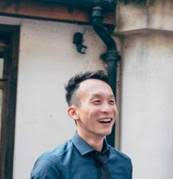- The 20 best inventions from over 2,000 entries into the global James Dyson Award have been selected by a panel of Dyson engineers.
- 15 Dyson engineers from across the world came together to decide the finalists.
- Sir James Dyson will now select his global winners from this list, announced on 17 November.
New Delhi, 13 October 2021: Today marks the beginning of the international stages of the James Dyson Award 2021 as the global shortlist of 20 pioneering inventions has been announced. All have the chance to become a global winner and receive £30,000 to support the next stages of their inventions.
In August, the Award announced its national winners and runners-up, across 28 countries and regions. From bio-leather made from citrus peels, an aircraft sealant made from Pili resin, a wearable biomedical device for at-home intraocular pressure testing, to sustainable sanitation for bottom-of-the-pyramid communities – this was just the start of uncovering the world’s next brightest minds and young inventors.
The Top 20 Shortlist
15 Dyson engineers, scientists and designers from around the world have reviewed the 83 national finalists to curate this year’s global Top 20 shortlist of inventions.
At Dyson, we believe great ideas come from diversity of thought and experience. Our judges celebrate the wide range of knowledge and expertise within Dyson’s Research, Design and Development teams. They specialise across a broad range of engineering fields including Microbiology, Automation, Sustainability, Software, Motors and Technical design, Early Concepts, Healthcare, Manufacturing. They were joined by high-performing undergraduates from the Dyson Institute of Engineering Technology to share their insight, challenging conventional design processes.
“I believe the James Dyson Award is an extremely effective way of encouraging young engineers to focus hard on their ideas and move the designs forward quickly. The Award provides a fertile starting ground for innovation to take root and get the support and recognition that teams and individuals need to succeed.” John McGarva, Global Head of Design Engineering at Dyson and Top 20 judge.
The panel analysed, debated and reviewed all the national finalists, coming together virtually to whittle down the final shortlist.
“What impressed me the most about the Top 20 shortlist was that many entries originated from a very human origin – empathy. Inventions were inspired by the suffering of others, be it limitations in mobility, visual impairment, barriers in communication and so on. Addressing these issues shows that young people care and want to bring a genuine difference to those that are less fortunate.” Eilenne Loh, Floorcare Design Engineer at Dyson and Top 20 judge.
Invention never stops.
Students around the world continue to prove that invention never stops and that they have the capability to solve the world’s most difficult problems. 2021 is another record-breaking year for the Award receiving the highest number of entries ever, with over 2,000 projects submitted to take part in the competition. The Top 20 inventions are designed to solve global issues head-on with unique solutions. Whether that is a scanner to determine types of plastics, an assistive drawing device or new male contraceptive, these solutions have global resonance. Many of these ideas have been developed over the past two years in a global pandemic. Collaborating with teammates virtually and making the most of at-home resources whilst laboratories were closed.
What makes an entry Top 20 worthy?
Lead Technology Scout, Kay Yeong, says: “The invention needs to solve a real challenge with a well-researched and elegant design. The entrants need to demonstrate that they really understand what the problem is, engaged with experts and end-users, and try as much as they can to test and improve their solutions.”
“A thoroughly considered design is key, with evidence of a deep iterative process, and an openness around failure – the lessons learnt and improvements made. Great inventions take time to flesh out, and failures are necessary to refine the design.” Alex Davison, Undergraduate Engineer at the Dyson Institute of Engineering and Technology.
So, what does the future of invention look like? Read about our Top 20 inventions on the Dyson Newsroom here.
Stay tuned for 17 November 2021 when Sir James Dyson will announce the global winners of the James Dyson Award.



